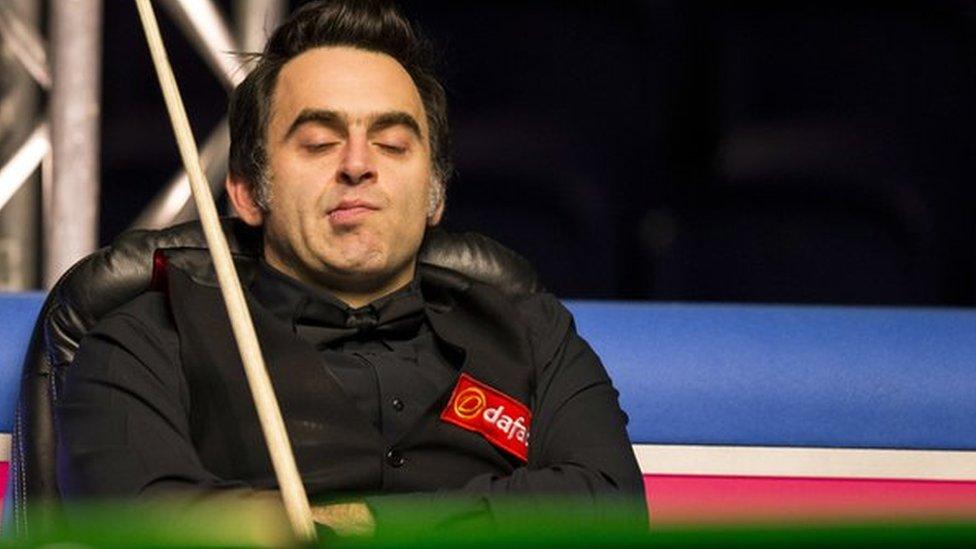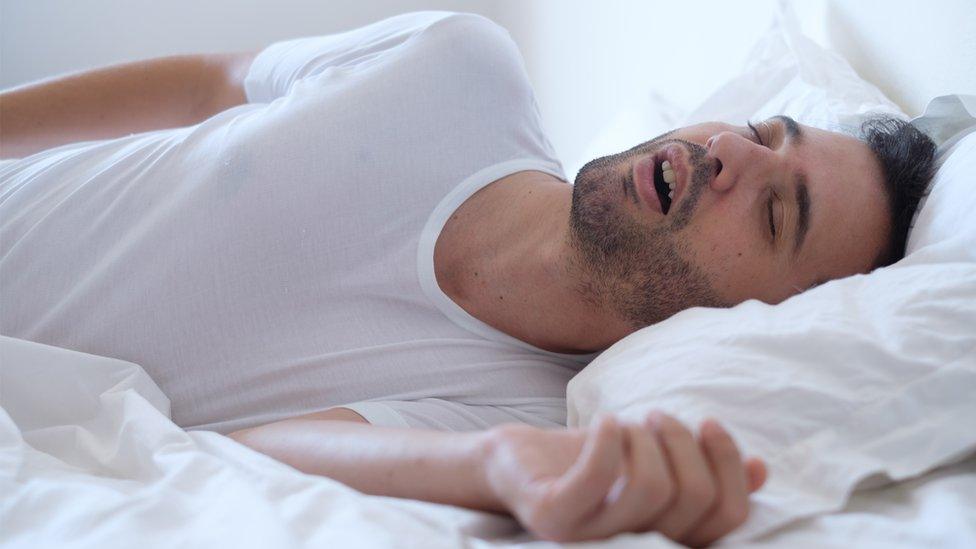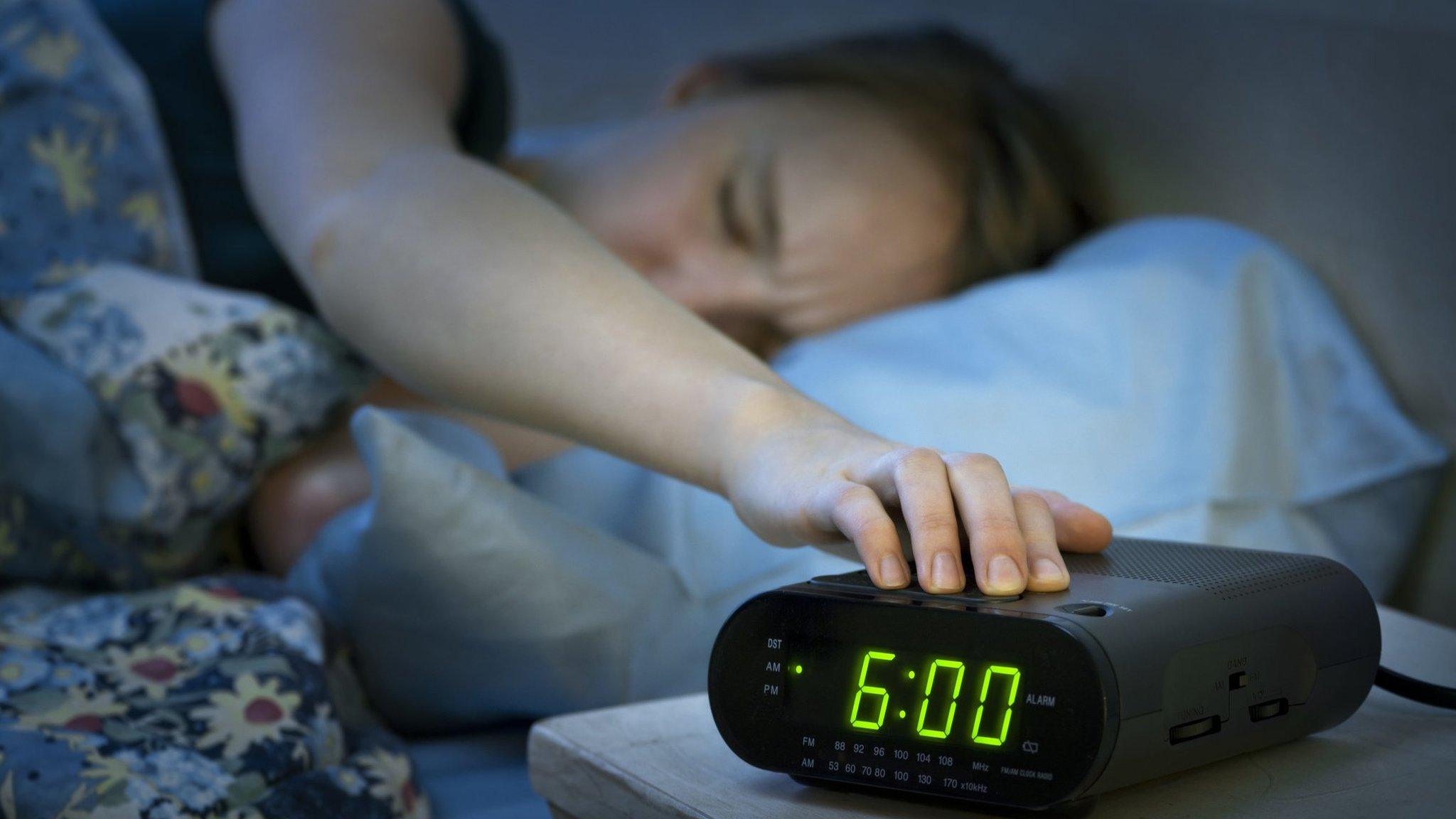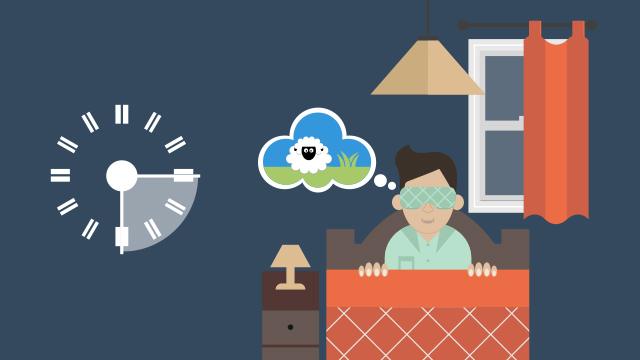Do power naps like Ronnie O'Sullivan's do any good?
- Published

I snooze, you lose?
Snooker player Ronnie O'Sullivan took a series of short sleeps before going on to reach the last 16 at the Scottish Open. And this got the Reality Check team wondering, are power naps good for you?
O'Sullivan said his doctor had advised him to get as much sleep as possible, and that it was working.
There is evidence that short sleeps can be beneficial, but to reap those benefits takes planning and the ability to fall asleep quickly.
Timing is the key to a perfect nap.
There are two fundamental rules, according to Prof Kevin Morgan at Loughborough University's Clinical Sleep Research Unit.
He recommends a siesta between 13:00 and 16:00. "There is a natural physiological dip in the circadian rhythm and body temperature drops. We almost certainly evolved to sleep at that time of day."
The other is to make sure you don't sleep for too long.
We sleep in cycles, each lasting about 90 minutes, and each cycle is made up of four stages. Stages one and two are when the body relaxes before entering stage three, called slow-wave sleep, which then gives way to REM sleep.

Sleep longer than 30 minutes, and you're likely to enter slow-wave sleep and wake up feeling worse than you did before you nodded off.
When someone is woken up from deep sleep (stages three and four), grogginess, or sleep inertia as it's technically known, kicks in. This leaves people disorientated and with impaired motor and cognitive ability.
Successful siestas are a skill that can be honed, and they work better if they're regular, according to Vincent Walsh, professor of human brain research at UCL.
"Sleep runs on a biological clock," he says. "Clocks like regularity. Making naps part of your day is a real piece of low-hanging fruit in health and well-being. It's worth getting right."
Coffee naps
A short sleep has a similar effect to a cup of coffee.
Sleepiness is caused by a build-up of the chemical adenosine in the brain. The caffeine in coffee works by blocking the brain's adenosine receptors, while sleep gets rid of it altogether.
It's a difficult balance, however, because if you're very tired, you will enter deep sleep much more quickly than usual.
One way to guard against falling too soundly asleep is to have a cup of coffee just before dropping off.
The caffeine takes about 20 minutes to take effect, so will kick in before you enter deep sleep.
The problem with the so called "coffee nap" is that it introduces time pressure, which can make it harder to fall asleep.
Efficient dozing is essential to take advantage of the short window between downing an espresso and beginning to feel its effects.
Power naps are a useful way to recharge, according to Prof Morgan: "They do work to manage excessive daytime sleepiness and to mitigate effects of inadequate sleep."
Athletes and world leaders have often shown an ability to drop off to sleep quickly, even when under pressure.
Sir Winston Churchill swore by his daily siesta and Napoleon went happily to sleep just before going into battle. It seems that O'Sullivan has a similar ability to fall asleep during moments of high tension.
It's worth remembering though, that there's no difference between an elite athlete's "power nap" and an old man's afternoon snooze.



- Published28 October 2017

- Published12 May 2014

- Published17 January 2020
